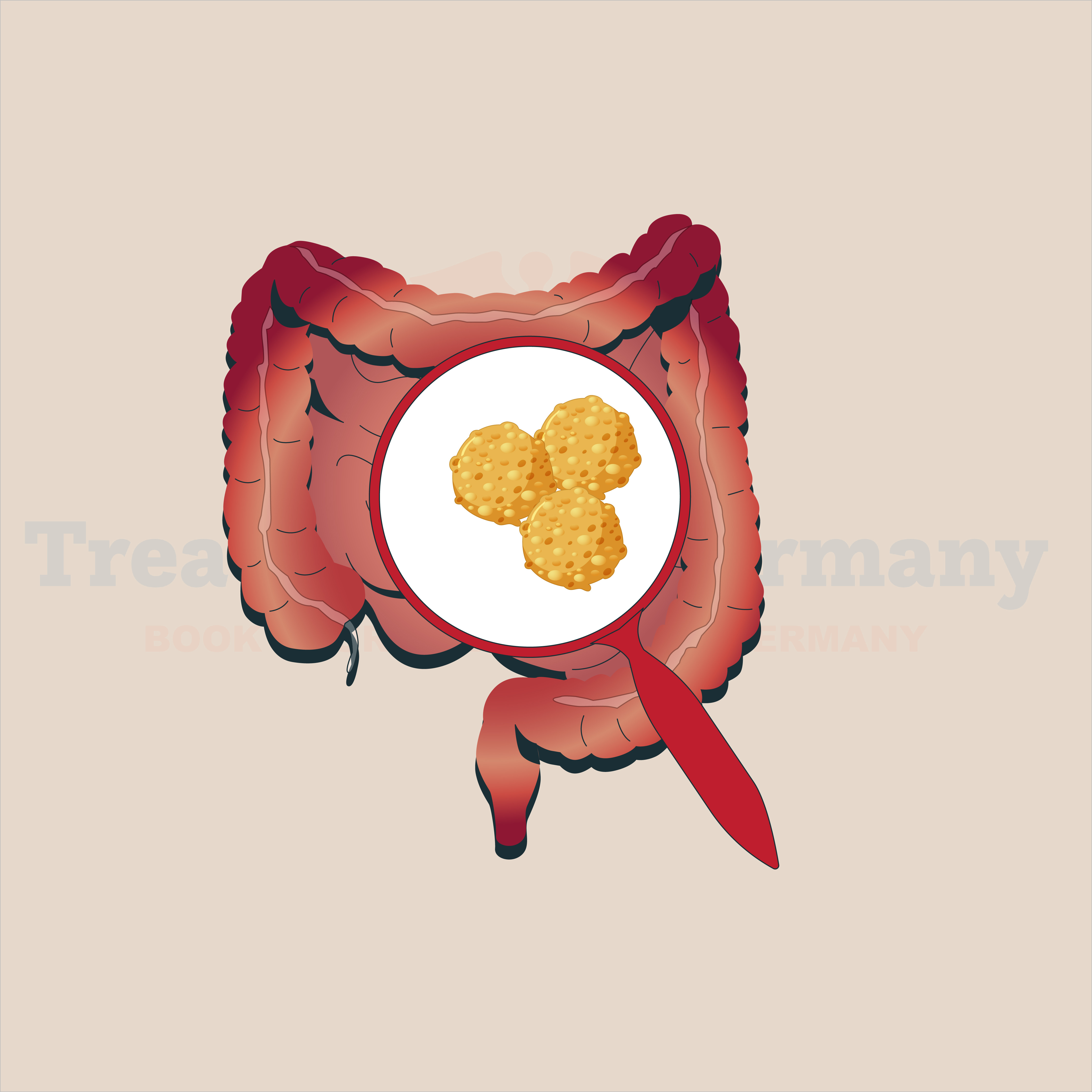Germany is known for advanced medical infrastructure and treatment facilities. German hospitals and clinics are equipped with the latest technology and personal approach to care in all treatments, such as small intestine cancer. The country is distinguished by skilled medical teams, innovative therapies, and outstanding survival rates for many cancers, small intestine cancer is among one of them.
Small intestine cancer describes the proliferation of malignant cells in the small bowel. The small bowel is a significant part of the gastrointestinal tract responsible for nutrient absorption. Though a rare condition, it can develop in a number of ways depending on the type of cells involved. Most of the cancers are identified in the duodenum, but they may affect any part of the small intestine.
Small intestine cancer is the term most often used to describe other types of gastrointestinal conditions, including colon cancer, esophageal cancer, and stomach cancer. The small intestine is part of an organ system that includes the liver, pancreas, and gallbladder thus, these organs are relatively important in defining and managing the disease.
Types of Small Intestine Cancer
Small intestine cancers belong to one of several classes depending on the type of cell that's involved:
Diagnosis of Small Intestine Cancer in Germany
Early small intestine cancer diagnosis greatly enhances the chances of patient survival. German experts carry out several tests to correctly detect this cancer.
Early Small Intestine Cancer Diagnosis
Small Intestine Cancer Treatment Facilities in Germany
Germany possesses some of the world's most excellent cancer treatment facilities. Advanced hospitals are set up with technology that assists them in their execution to treat small intestine cancer precisely and with care.
Innovative Small Intestine Cancer Treatment
Small intestine cancer at stage 4 needs additional surgery with other treatments.
Chemotherapy and Radiation Therapy
Chemotherapy and radiation therapy are the most significant therapeutic modalities. While chemotherapy is all about the distribution of chemotherapy throughout the body, radiation therapy is concerned with the shrinking of the tumor in a particular region of the body.
Dendritic Cell Therapy
Dendritic cell therapy is an emerging immunotherapy that enhances the body’s immune system to fight cancer cells, specifically targeting small intestine cancer.
Hyperthermia Therapy
Hyperthermia therapy is often used in combination with other treatments like chemotherapy and radiation to enhance their effectiveness.
Targeted Therapy
Targeted therapy uses drugs to specifically attack cancer cells while minimizing damage to healthy tissues, providing a more precise treatment for small intestine cancer.
Proton Beam Therapy
Proton beam therapy is an advanced form of radiation therapy that targets cancer cells with high precision, sparing surrounding healthy tissues.
Psychological Counseling
Treatment for the disease can be psychologically demanding. While many of the German hospitals have psychological counseling for these patients to cope up with the pressure and anxiety their condition brings.
Cost of German Hospitals for Small Intestine Cancer Treatment
The cost of treating small intestine cancer in Germany can vary greatly due to the stage of the cancer, the type of treatment that may be required, and which hospital or clinic. Generally, the cost of treatment would be comprised of: first consultations, full diagnostic tests like CT scans, MRI, and biopsy, and the primary treatment, which may be surgery or chemotherapy, or even more complex procedures such as immunotherapy and targeted therapy.
For the first phase, the expenses are not typically too high and involve more of a surgical procedure and less extensive treatment. For Stage 4 small intestine cancer, when subjected to chemotherapy and radiation therapy treatments, the expenses are increased on account of more clumsy treatment procedures. Along with this, post surgery rehabilitation and follow up treatment procedures are also added as part of the total expenses.
Top Small Intestine Cancer Treatment Hospitals in Germany
Top hospitals for the treatment of small intestine cancer in Germany are:
Those institutions are well equipped with high tech facilities to treat small intestine cancer with proper care.
Why Treat Small Intestine Cancer in Germany?
The treatment for small intestine cancer offered in Germany is one of the best across the globe due to its medical standards and innovation.
Key Advantages of Treatment in Germany
Frequently Asked Questions:
What are the common forms of small intestine cancer?
The common ones are carcinoids tumors, adenocarcinomas, sarcomas, and lymphoma, among others. Each one occurs in different types of cells in the digestive system.
How is small intestine cancer diagnosed in Germany?
Germany hospitals have employed sophisticated diagnostic technology such as CT scan, MRI, and upper endoscopy. These help to detect cancerous tumors, estimating the stage of development for appropriate treatment.
What are the available treatment options for small intestine cancer in Germany?
The treatment includes surgery, chemotherapy, radiation, and newer forms such as immunotherapy or targeted therapy. The treatment plan is different for every type and stage of cancer.
What are the advantages of treating small intestinal cancer in Germany?
Germany offers the most advanced technology with experienced specialists and innovative treatments. Patients will receive full care in addition to the best survival rates for gastrointestinal cancer.
How much do small intestine cancer treatments cost in Germany?
The cost varies according to the type of treatment, but in general, the care and treatment received here in Germany is world class, not to mention affordable, including diagnostics, surgery, and post treatment rehabilitation.
👉 Contact us for further information and receive a complimentary consultation.


.webp)
 (1).webp)

.webp)
 (1).webp)


.webp)
 (1).webp)

.webp)
 (1).webp)
